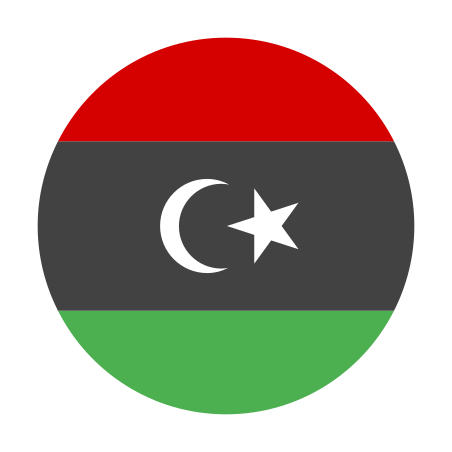


In the 1970s, the revolutionary regime of Muammar Gaddafi expropriated and redistributed land. In the aftermath of his fall, former owners started to claim their land back - putting them at loggerheads with current occupants. Dr Suliman Ibrahim analysed one particularly revealing land dispute in the eastern Libyan city of Tobruk which seemed impossible to resolve until its very unexpected end.

What are the experiences of people looking for justice in contemporary Libya? For Phase 1 of the Access to Justice-project, Supreme Court Judge Ali Abu Raas analysed the justice journeys of three family members of the victims of the Abu Salim-prison massacre of 1996, during which an estimated 1270 prisoners were killed.

South Libya’s capital Sabha has seen an increase in abductions since the fall of Gaddafi in 2011. Dr Mabrouka el-Farawi investigated the justice journeys of four families in Sabha whose children were abducted for ransom. Where police proved unable or unwilling to help, people turned to armed groups and tribal authorities who could often do more.

During Libya's 2011-12 revolution and armed conflict, people were murdered on all sides. Attaher Elhaj shows how in Bani Walid, the ensuing justice journeys of surviving relatives have been profoundly shaped by the alleged political allegiances of their murdered relatives and those who murdered them.

Women who suffer from spousal violence in Libya, may be reluctant to 'search for justice', and especially to involve formal state actors like police, prosecutors, or courts. They face intimidation, social pressure, stigma, and a justice journey riddled with obstacles. Nevertheless, Dr Jazia Shayteer shows how several women in Benghazi do try to hold their (ex-)husbands to account, and with what results.

Who is responsible for damages resulting from a civil war? Ahmed al-Radamah interviewed Tebu, Tuareg and Arabs in Awbari who suffered damages during the 2014 fighting. They tried different mechanisms to get a remedy - taking their claims beyond Tripoli to Qatar - yet so far compensation remains a distant promise and the process is shrined in contested uncertainty.

Some of the most vulnerable people in Libya, are the country's estimated 700,000 irregular or undocumented migrants. Their very stay in Libya constitutes a crime, and so they avoid state authorities when they can. Dr Hala el-Atrash's research revealed that when irregular migrant women appear before Libya’s justice system, it is often not as claimants or victims but as suspects.

Libya's oil production sometimes leads to disputes between companies and local inhabitants, such as in oasis areas Jalu, Jakharrah, and Awjilah. For this study, Khadija Faraj interviewed people who were affected by oil pollution and local experts.


Libyan women have the right to inherit land – both in sharia and statutory law – and depriving them of this right (‘disinheritance’) is even forbidden. But what happens in practice? Suliman Ibrahim and Bruno Braak dive deep into one case study to learn how women's attitudes and actions in response to disinheritance are changing.